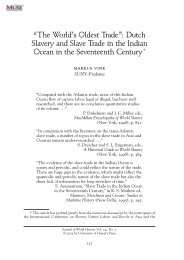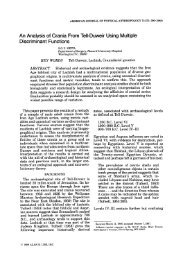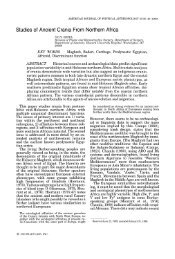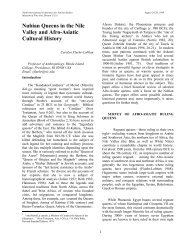THE FALSITY OF HEGEL'S THESES ON AFRICA
THE FALSITY OF HEGEL'S THESES ON AFRICA
THE FALSITY OF HEGEL'S THESES ON AFRICA
You also want an ePaper? Increase the reach of your titles
YUMPU automatically turns print PDFs into web optimized ePapers that Google loves.
Camara / HEGEL’S <strong>THE</strong>SES <strong>ON</strong> <strong>AFRICA</strong> 89<br />
conflicts. Initially, it remains latent and can only be perceived in the<br />
will of concerned groups and in their efforts to organize themselves<br />
in order to avoid anarchy. At that time appear orders, castes, and<br />
finally classes as so many organic expressions of social inequality.<br />
The concerned groups try to institutionalize them (i.e., to give a<br />
legal form and therefore make them acceptable for the entire society).<br />
However, this organization, because it necessarily stems from<br />
the initiative of groups in high positions and who want to preserve<br />
their own social benefits, cannot but reflect the interests of such<br />
groups. Even if such organization shows some form of harmony and<br />
collaboration among groups, it still expresses class antagonism—<br />
not yet visible—in its very principle. Pierre Fougeyrollas (1974)<br />
tells us,<br />
Under the co-existence of ethnic shepherds and peasants, under their<br />
hierarchized co-existence of orders and castes, Sahelo-Sudanese<br />
societies have experienced the latent or obvious, repressed or exacerbated<br />
process of class struggle; the fact has been that sacerdotal or<br />
warlike noble families have controlled peasant and pastoral production.<br />
...Evenwhen traditional African law in general did not consider<br />
lands and cattle private properties, they have remained, in fact,<br />
at the disposal of some people who set themselves up as masters of<br />
the majority. (p. 5)<br />
What happens is that those very few whose official functions are<br />
to divide the economic resources have, every time, seized on the<br />
surplus production, thus progressively detaching themselves from<br />
the productive mass. They gradually become a layer of privileged<br />
nonproducers and, consequently, make up the state apparatus in<br />
Africa. As well explained by Dieng (1975), this economic surplus—which<br />
is the state’s objective foundation—is linked to the<br />
exploitation of the vast resources offered by the great rivers of Senegal<br />
and Niger. Dieng shows how, in Africa,<br />
the alluvial valleys of Sénégal and Niger have favored, in certain<br />
areas, the existence of a double crop, which creates an economic<br />
surplus likely to engender social differentiations. . . . Their valleys<br />
are favorable zones for cattle breeding, agriculture, fishing, hunting<br />
and the practice of craftsmanship. . . . They have been contact zones




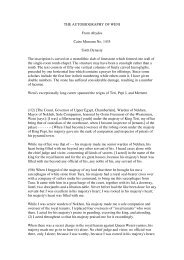
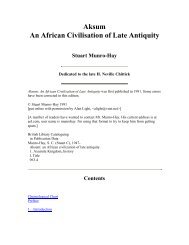
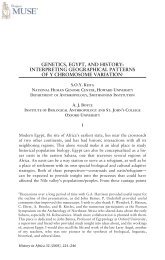

![The Negro trail blazers of California [microform] : a ... - Homestead](https://img.yumpu.com/32436613/1/174x260/the-negro-trail-blazers-of-california-microform-a-homestead.jpg?quality=85)
